A Study In Red (The Study In Red Trilogy Book 1)
Book summary
Psychiatrist Robert Cavendish discovers a journal that appears to belong to the infamous Whitechapel murderer, Jack the Ripper. As he becomes obsessed with the chilling words within, Robert finds himself slipping into a dark world where the line between reality and madness blurs. Can he trust his own mind?
Book excerpt from A Study In Red
Chapter One: A Revelation
My great grandfather was a physician, with a penchant for psychiatry, as were my grandfather and my father and it was always a given thing that I would follow in the family tradition, as, from childhood, I wanted nothing more than to follow in my forebears footsteps, to alleviate the suffering of the afflicted, to help ease the mental pain experienced by those poor unfortunates so often castigated and so badly misunderstood by our society. My name? Well, for now let’s just call me Robert.
My father, whom I admit to idolizing for as long as I could remember, died just over four months ago, a sad waste, his life snuffed out in the few seconds it took for a drunk driver to career across the central reservation of the dual-carriageway he was driving along, and to collide head-on with Dad’s BMW. By the time the ambulance reached the scene of the crash, it was too late, there were no survivors!
Dad was buried in our local churchyard, beside my mother, who passed way ten years ago, and the private psychiatric practice I had shared with him for so long became my sole domain. As a mark of respect, I took the decision to leave Dad’s name on the brass plaque that adorns the pillar beside the front door. I saw no reason to remove it. A week after the funeral, I was surprised to receive a phone call from Dad’s solicitor, saying that he was in possession of a collection of papers my father had bequeathed to me. This was strange, as I thought that the will had been straight forward, everything shared equally between my brother Mark and myself. I had received Dad’s share of the practice, Mark a substantial and equivalent cash sum. As I drove to the solicitor’s office I wondered what could be of such importance that Dad had left it to me in such a mysterious fashion.
As I drove away from the solicitor’s office, I stared at the tightly bound sheaf of papers, wrapped in brown paper, and tied up with substantial string, that now resided on the passenger seat of the car. All that David, the solicitor could tell me was that Dad had lodged the papers with him many years earlier, together with instructions that they were to be passed to me alone, one week after his funeral. He told me that Dad had placed a letter in a sealed envelope that would be on top of the package when I opened it. He knew nothing more. Knowing there was little I could do until I got home, I tried to put the package out of my mind, but my eyes kept straying towards the mysterious bundle, as if drawn inexorably by some unseen power. I was in a ferment of expectation as I drew up on the gravel drive of my neat detached suburban home, I felt as if Dad had something important to relate to me, from beyond the grave, something he obviously hadn’t been able to share with me during his lifetime.
My wife, Sarah, was away for the week, staying with her sister Jennifer, who had given birth to a son four days after Dad’s funeral. Jennifer had been married for three years to my cousin Tom, a brilliant if somewhat erratically minded computer engineer, who she had met at a dinner party at our house. Sarah had been reluctant to leave me so soon after Dad’s passing, and the funeral, but I insisted that she go and be with Jennifer at such an important and emotional time. I’d assured her that I’d be fine, and, as I locked the car and made my way to the front door of our home, I actually felt relieved that I was alone. Somehow, I felt that the papers I now carried under my arm were reserved for my eyes only, and I was grateful to have the time to explore their contents in private. I still had the rest of the week off, having paid a locum to baby-sit the practice during my official period of mourning, so the next few days were mine to do with as I chose.
Little did I know that, as I closed the heavy front door behind me, I was about to enter a world far removed from my cosy suburban existence, a world I had barely perceived from my history lessons at school. I was about to be shocked, all my conceptions of truth and respectability were to be rocked to the very core, though I didn’t know it yet.
I quickly changed into casual clothes, poured myself a large scotch, and retired to my study, eager to begin my investigation into Dad’s strange bequest. After seating myself comfortably in front of my desk, I took a sip of the warming, golden liquid in my glass, then, taking a pair of scissors from the desk, I tentatively cut the string from around the bundle of papers. Sure enough, as the solicitor had indicated, there on top of a very thick loosely bound stack of papers was a sealed brown envelope, addressed to me, in the unmistakable handwriting of my father. I held it in my hand for a good minute or so, then, as I looked down and saw that my hand was trembling with anticipation, I reached out with my left hand for the solid silver paper-knife in the shape of a sword that Sarah had bought me for my last birthday. In one swift movement I slit the top of the envelope, reached inside and removed the letter within. The letter, handwritten by my father and dated almost twenty years earlier was a revelation to me, even though, as I read, I was still unaware of the true significance of the loosely bound papers that accompanied it. The letter read as follows:
To my dearest son, Robert,
As my eldest son, and also my most trusted friend, I leave to you the enclosed journal, with its accompanying notes. This journal has been passed from generation to generation of our family, always to the eldest son, and now, as I must so obviously be dead, it has passed to you.
Be very careful, my son, with the knowledge that this journal contains. Within its pages you will find the solution (at least, a solution of sorts) to one of the great mysteries in the annals of British crime, but with that solution comes a dire responsibility. You may be tempted my son, to make public that which you are about to discover; you may feel that the public deserves to know the solution to the burning mystery, but, and I caution you most carefully, Robert, should you go public with the knowledge, you will risk destroying not only everything that our family has stood for through over a hundred years of medical research and progression in the field of psychiatric medicine, but you may also destroy the very credibility of our most cherished profession.
Murder most foul Robert! It is of that most heinous crime that you will read, as I read following the death of your grandfather, and he also before me. But are there worse things than murder in this world? Do we have the right as doctors to make the judgments that the courts should rightly dole out? My son, I hope you are ready for what you are about to learn, though I doubt I was at the time I read the journal. Read it well my son, and the notes that go with it, and judge for yourself. If, as I did, you feel suitably disposed, you will do also as our family have always done, and keep the knowledge of its contents a closely guarded secret, until the time is right to pass it on to your own offspring. The knowledge is I fear the cross the family must bear, until one day, perhaps, one of us feels so ridden by conscience or some form of need for absolution, to reveal what the pages contain.
Be strong my son, or, if you feel you cannot turn the first page, go no further, reseal the journal in its wrappings, and consign it to a deep vault somewhere, let it lie forever in darkness, where perhaps it rightly belongs, but, if you do read the contents, be prepared to carry the knowledge with you for ever, in your heart, in your soul, but worst of all, in your mind, a burden of guilt that can never be erased.
You are my eldest son, and I have always loved you dearly. Forgive me for placing this burden upon you,
Yours with love
Dad
As I finished reading the letter, I suddenly realized that I’d been holding my breath, such was the tension I felt inside, and I took a deep breath and then sighed. The trembling in my hands had increased, and I reached for the bottle of amber liquid at the side of the desk and poured myself another large one. Suddenly, I felt as if whatever was contained within these papers lying unopened before me was about to irrevocably change my life, not outwardly perhaps, but I knew before I even looked at the documents that whatever was contained within these pages was obviously of grave significance. If not, why had my family gone to such pains to protect the secret contained within them? I gulped the scotch down, too fast, the liquid burned my throat, and I coughed involuntarily.
At this point of course, I had no idea what the papers contained, though my father’s words had given me a sneaking suspicion that I knew where this was leading. Unable to wait any longer, I broke the tapes around the journal, and there it was, the family secret, about to be unveiled! The first sheet of paper, resting on top of the rest, was definitely old, and written in the typical copperplate handwriting of the nineteenth century. There was no date or address at the top of the paper, it seemed to be little more than a series of notes, there was no signature, nothing at all to identify the writer.
I read as follows: How do I begin to relate all that has happened? Would anyone believe the incredible story? Is it the truth? Is he really the man? The journal could be the work of a clever man, an attempt to deceive those who read it, but no, I knew him too well, spoke with him too often. He was telling the truth! As for me, what of my part in all this? Am I guilty of complicity, or have I done the world a favour by my actions? That he will trouble the people of London no more is now certain. That he was deranged I could testify to myself, but what of proof? What of evidence? Apart from the ravings of the lunatic, all I have is the journal, and I had it too long, knew too much too soon, to bear the disgrace of admitting that I could have stopped it all if I had spoken sooner. Now I cannot speak at all for to do so would destroy me, my work, and my family. Who would understand that I held silent because I thought him mad, too mad to believe, and yet his madness was the very thing that drove him, and I should have believed? And when I did believe, what then? It was too late, I could do no more, God help me, I should have stopped him, stopped him right at the beginning when he told me, when he laughed and laughed and told me that no-one would ever catch him, why, oh why didn’t I believe him then?
After the most hideous death of that poor girl, Mary Kelly, I had to do something, and I did, but, knowing what I know, what I knew already, I should have acted sooner. May God forgive me; I could have stopped Jack the Ripper!
I was holding my breath again, and, as I exhaled, my eyes moved to the final note at the bottom of the page, seemingly written some time later than the rest of the notes, the writer’s hand less bold, as though he were shaking as he wrote these final words.
Jack the Ripper is no more, he’s gone, forever, and yet, I feel I am I no better than the monster himself? I swore an oath to save life, to preserve, not to destroy, I am naught but a wretched, squalid soul, as squalid as the streets he stalked in life, and will forever, I am sure haunt in death. I bequeath this legacy to those who follow me; judge me not too harshly, for justice may be blind, and I have acted for the best as I saw it at the time. I have despoiled my oath, his blood is mine, and that of those poor unfortunates, and I must bear what I have done within my heavy conscience and my aching heart for the rest of my days!
Jack the Ripper! I knew it, it had to be, just as surely as the page I’d just read had to have been written by my great-grandfather. I knew from our family history that my great-grandfather had spent some time as a consulting psychiatric physician at the Colney Hatch Lunatic Asylum during the 1880s, and it now seemed that he’d been privy to knowledge that the rest of the world had been seeking for over a century, or, at least, he believed himself to have been. Yet, what did he mean by the references to his complicity, what action had he taken?
Another sip of scotch, more fire in my throat, and I was ready to take the next step. I had to see the journal; had to know what my great-grandfather knew. If he’d solved the mystery of the ripper murders, why hadn’t he revealed the truth? What could possibly have enticed him to keep silent about the most celebrated series of murders ever to strike at the heart of the great metropolis that was nineteenth century London? What part did he play in the tragedy, how could he, a respected physician and member of society have been complicit in the foul deeds perpetrated by Jack the Ripper? He was my great-grandfather after all, I refused at that point to believe that he could be in any way connected with the murders of those poor unfortunate women, and yet, in his own words, he’d stated that he could have stopped the Ripper. Again I asked myself, what could he have known, what could he have done? Looking at the loosely bound journal on the desk in front of me, I knew there was only one way I was going to find out!
“A splendid psychological thriller that leads the reader down many dark alleyways”
“An insightful, original take on the Jack the Ripper slayings”
“A brilliant, well-researched thriller”










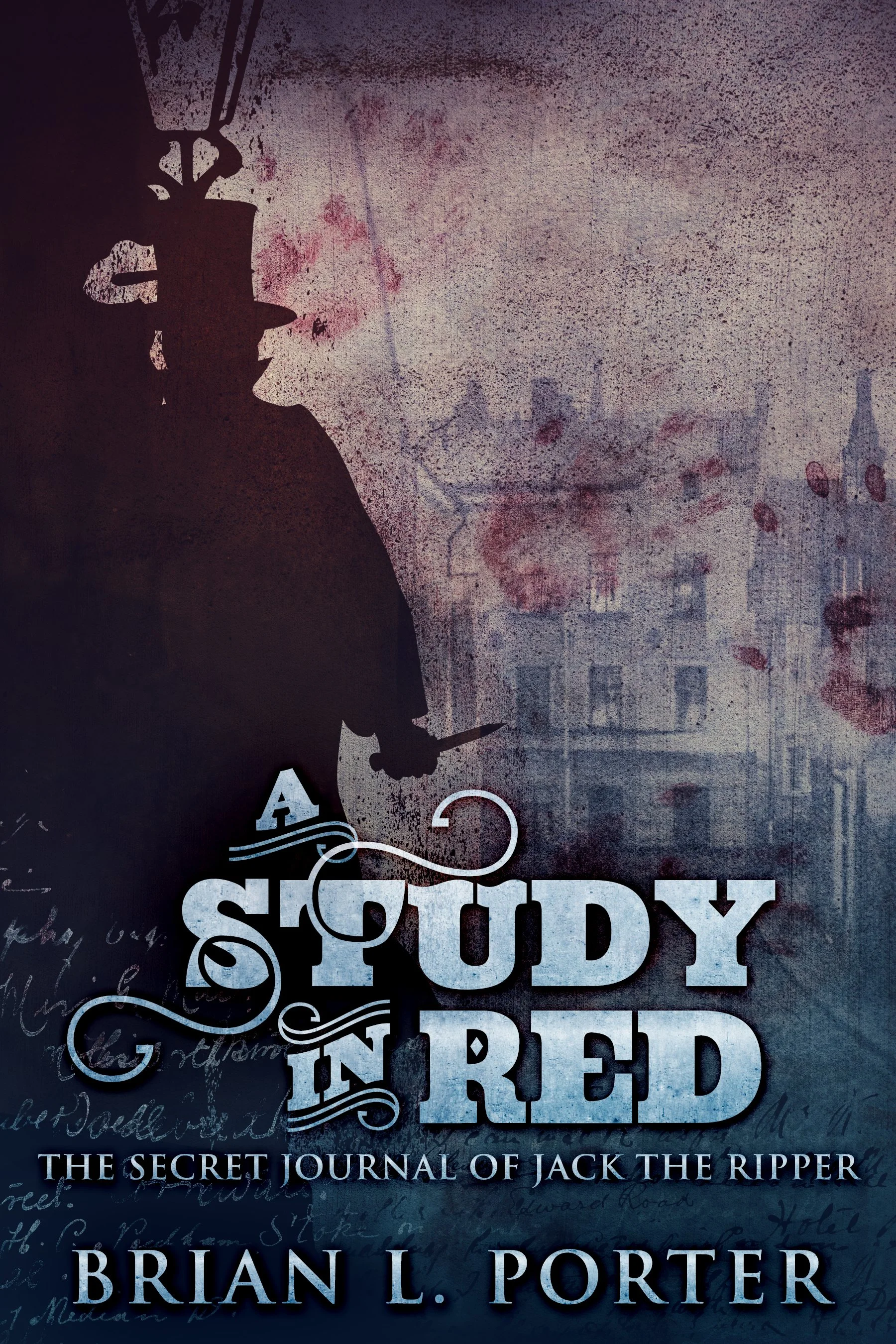
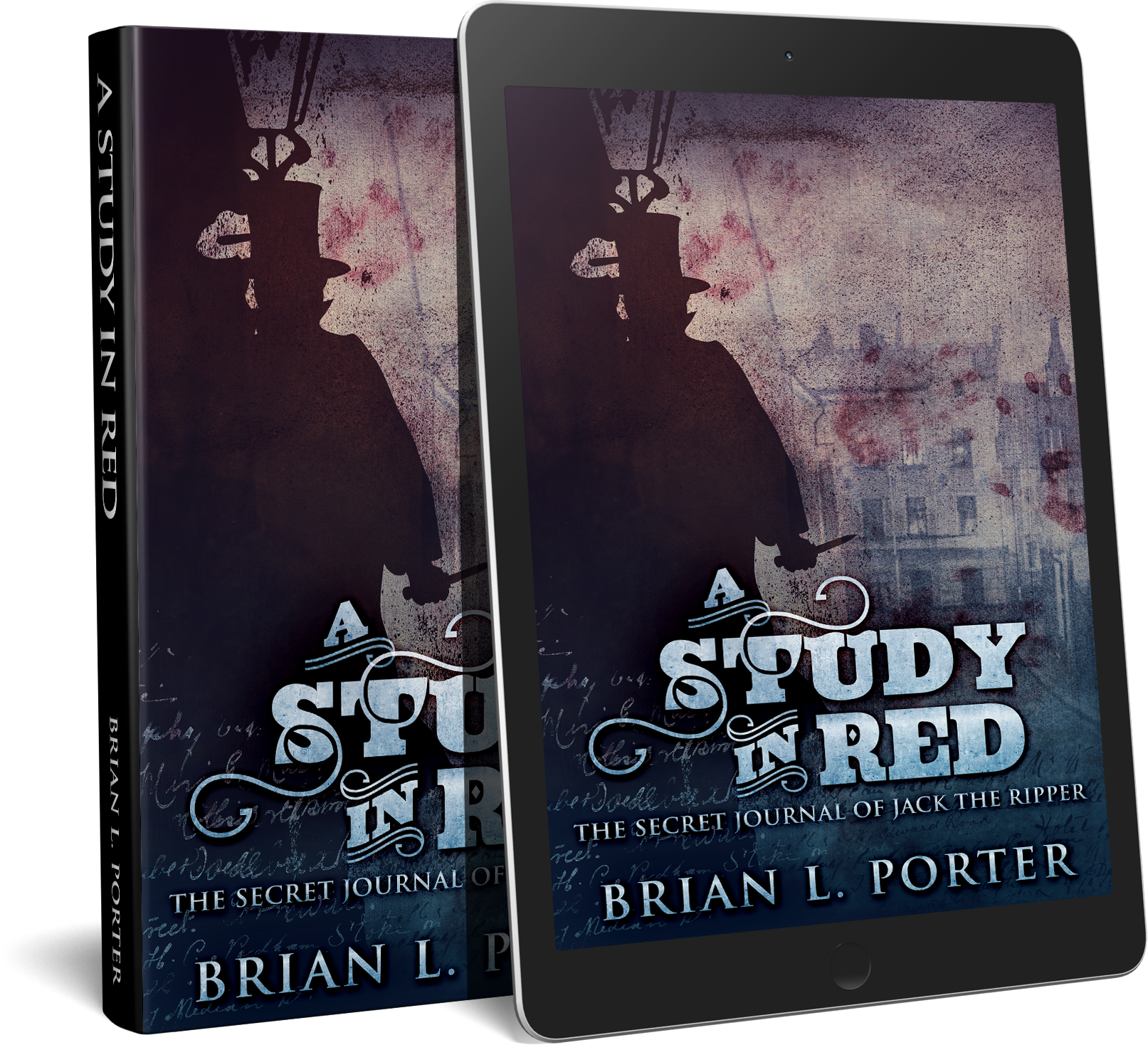



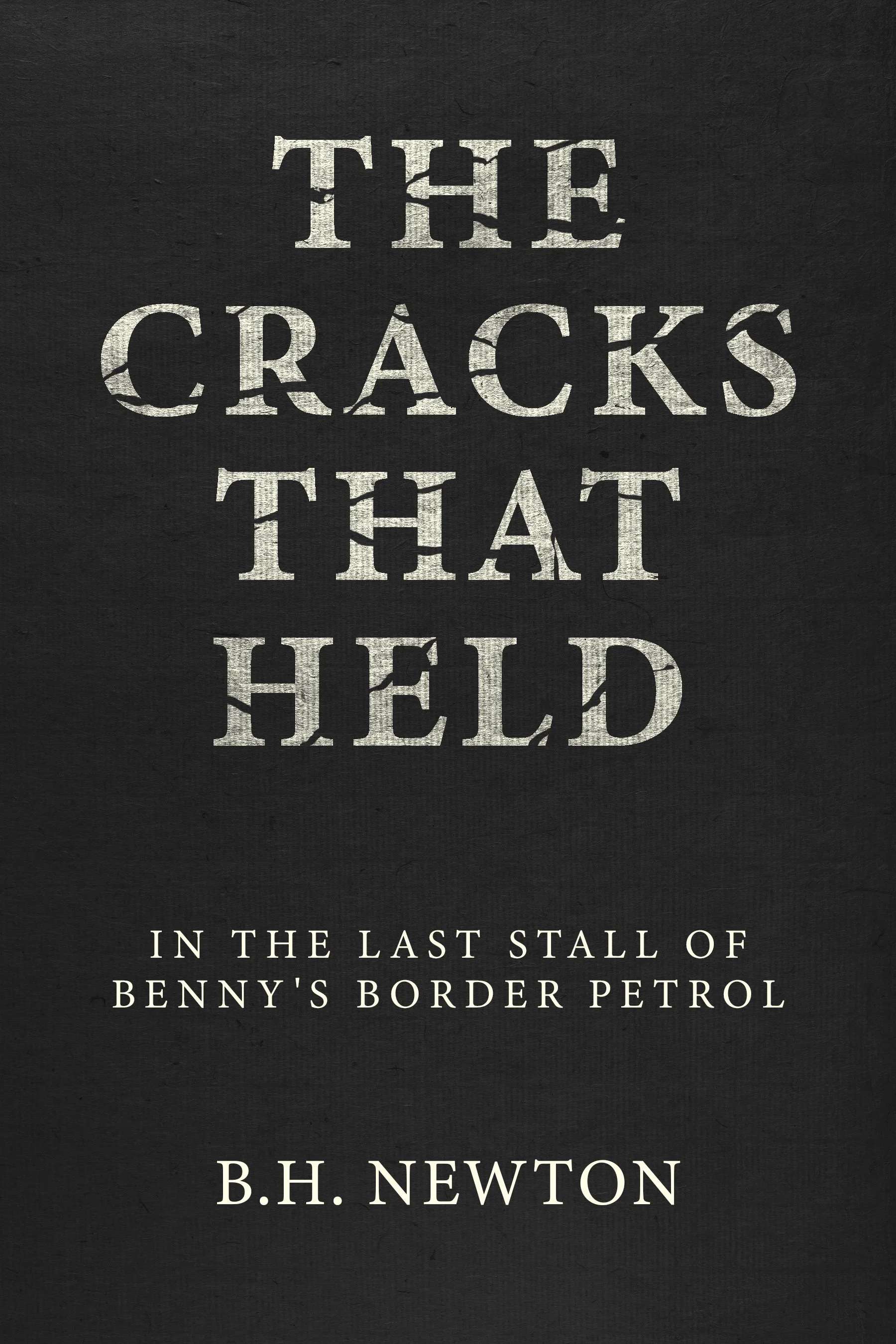


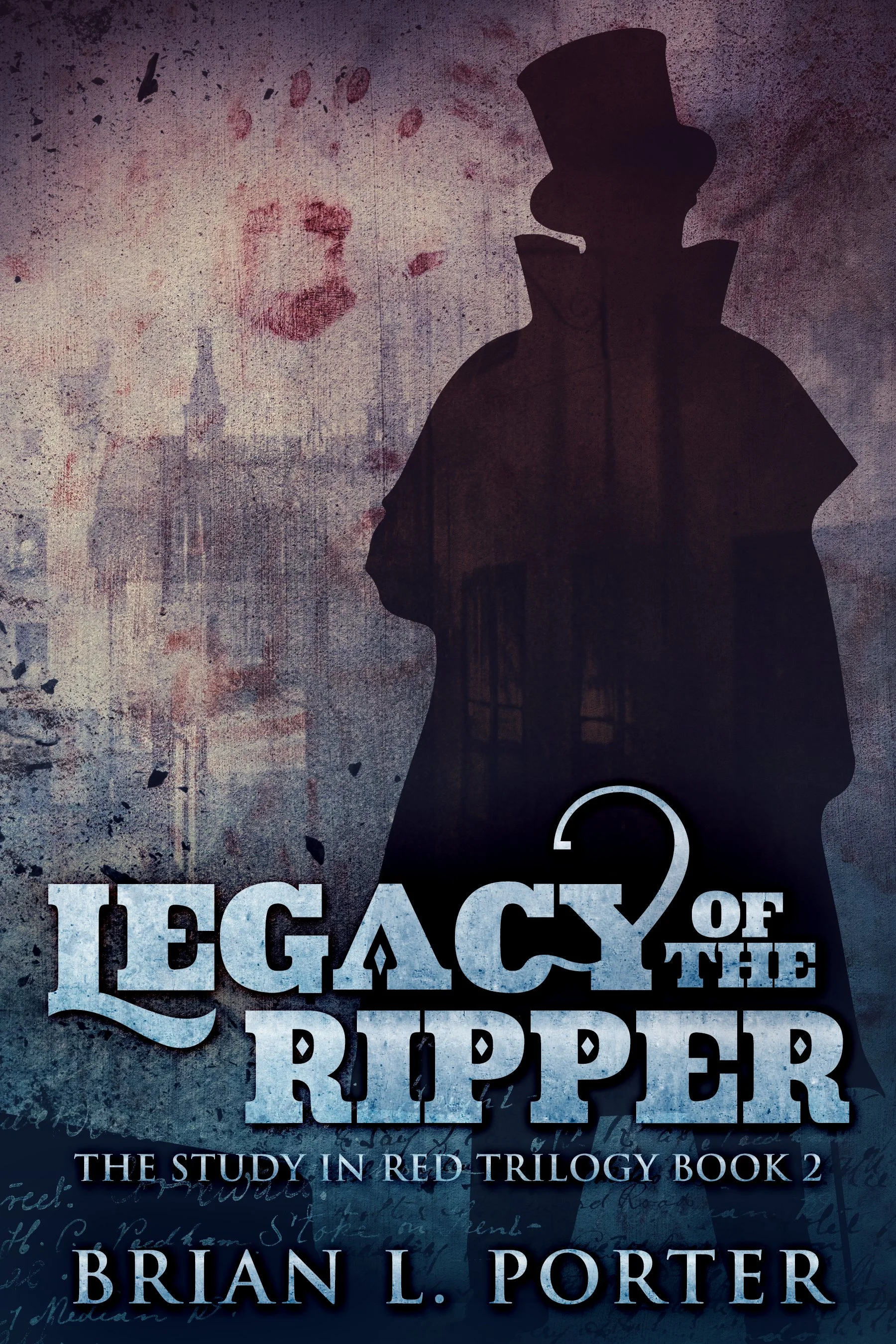
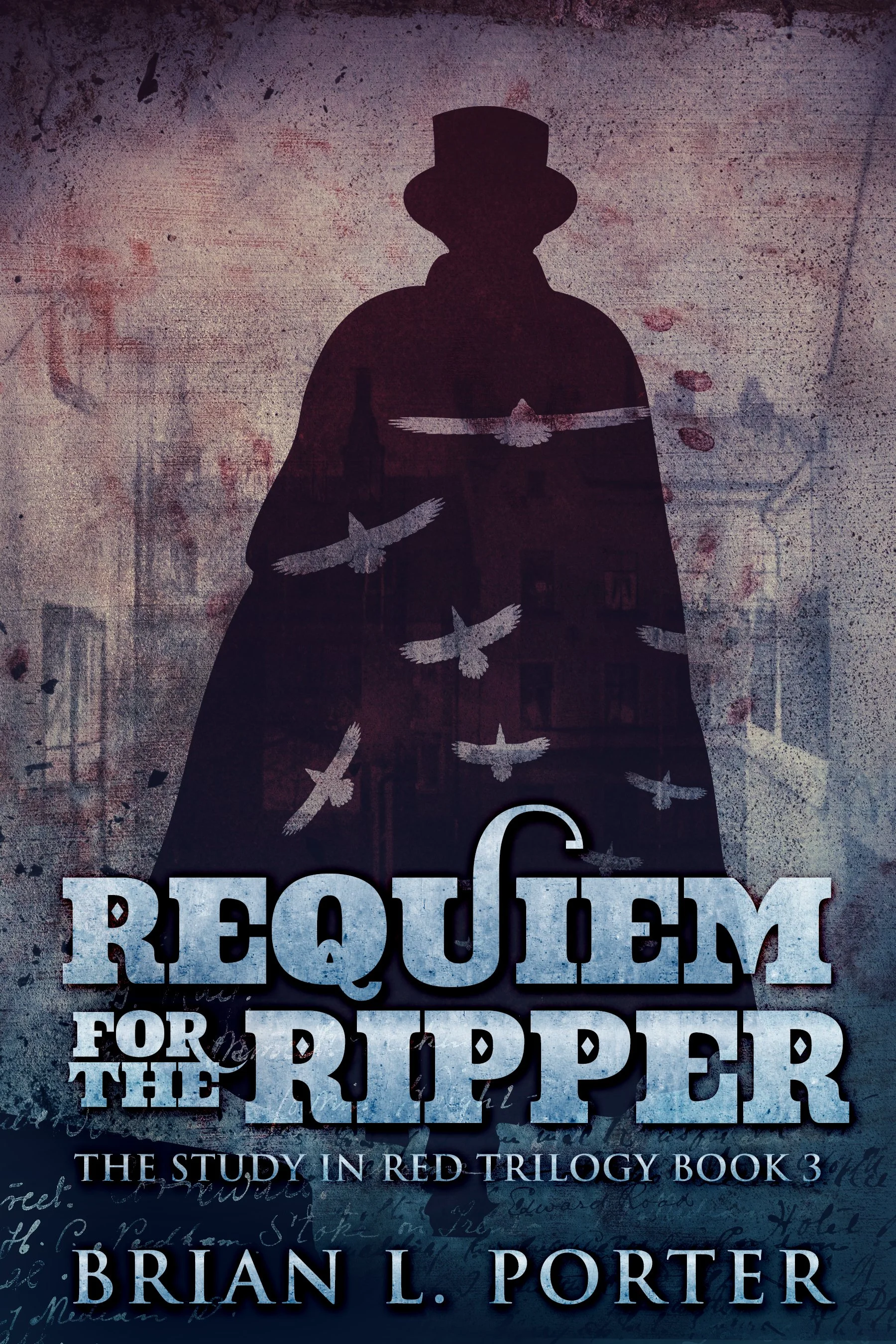
Praesent id libero id metus varius consectetur ac eget diam. Nulla felis nunc, consequat laoreet lacus id.